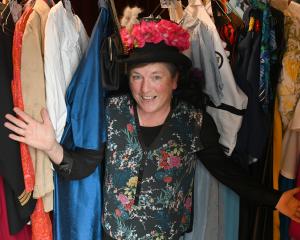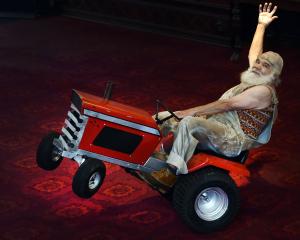Barbara Frame reviews In the Next Room, or The Vibrator Play.
In the Next Room, or The Vibrator Play
Fortune Theatre
Friday, June 29
In 1880s America electricity is a novelty. It lights Dr and Mrs Givings' living room, and in the adjacent surgery Dr Givings treats a common complaint, "hysteria", with electrically-induced "paroxysms".
The treatment's vibrations are such that they cannot be contained within the surgery, and impulses and passions spark and flare among Mrs Givings, patients and staff. To add to the confusion, ideas from less inhibited cultures are introduced.
Dr Givings, however, remains the impartial man of science.
"What men do not observe because their intellect prevents them from seeing would fill many books," he remarks, but this insight does not extend to observing his wife's growing distress.
Lara Macgregor directs Sarah Ruhl's strange, funny, charming play about ignorance and repression, drawing sensitive and intelligent performances from all of the cast.
I was particularly impressed by Chelsea McEwan Millar's warmth and bounce in the role of the disappointed but resourceful Catherine Givings, and Claire Dougan's finely-tuned comedy as rigidly neurotic patient Sabrina Daldry.
Other roles are played by Jason Whyte (Dr Givings), Conrad Newport (Mr Daldry), Anna Henare (Elizabeth), Nic Kyle (Leo Irving) and Hilary Halba (Annie).
Visually, too, the production delights. Maryanne Wright-Smyth's detailed costumes might have materialised from Whistler paintings, and Peter King's sumptuous set is among his best ever.
The play's unusual and unsettling subject matter, and its nuances, absurdities and humour brought responses ranging from hoots of laughter and anxious titters to shocked astonishment from Friday night's largely female audience.
This is not to suggest that In the Next Room is crass or a gynaecological "women's play"; it is neither, and its tone is compassionate.
It provides us with opportunities to consider the oddity of bygone practices and ethical assumptions, and perhaps to reflect on the peculiarities of our own age.
- Barbara Frame











